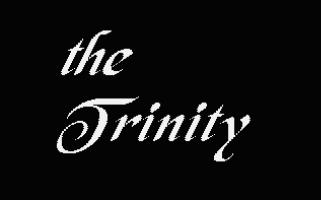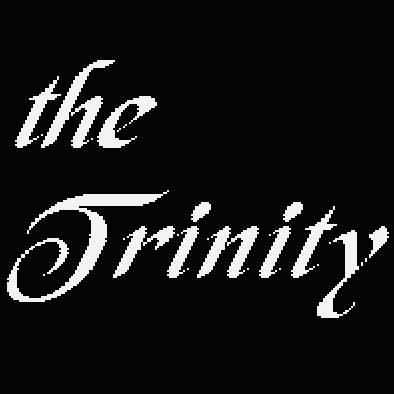Trinity Denied Issue 1 - Corrections

Looking back at Trinity Denied Issue #1, I have noticed a few naive statements of vague assertions that I never was really "sure" about. I have finally realized my position as a Satanist and I as the editor of Trinity Denied would like to offer these corrections:
For one, I claim that Satanists tend to be "agnostic," or "I'll believe it when I see it." For one, agnostics just believe that there is no evidence or prove or disprove God. Agnostics tend to consider agnosticism more logical than both Theism or Atheism, but I instead consider agnosticism a weak standpoint, as its basic principles could be applied to ANYTHING! Agnostics tend to believe that agnosticism is more reasonable than atheism because "How can you know?" But calling it more reasonable to deny reasonable lack of belief and saying human reason can never quite determine god's existence is silly. Agnostics are just as "bad" as Christians who say "God is beyond our understanding."
Any God can be proposed and believed in. [Theism] And any*THING* can be dreamed up and one could say "there is not enough evidence to disprove or prove its existence." I consider Theism to be destructively narrow, and agnosticism to be painfully broad and compromising.
I consider atheism to be a stronger "system" if you will. Many call atheists "unreasonable" because "How can you really be sure?" The strong atheists can respond with that same question in reference to ANYTHING's existence. Atheists see all gods and theistic religions objectively, we see none as more "truthful" and therefore choose not to believe. STRONG Atheists see the entire "God" and "Why?" concept as purely manmade, and choose not to believe.
If you define god to be "controller of destiny" and "provider of purpose," I as a Satanist consider myself my own God. Christians often question us--"What is your reason for being without God?" They wonder how we can live without a divine creator to give us a reason. To me, that shows strength in us...and weakness in them. The Satanist providers their own reasons, their own purpose, their own means. The Theist *NEEDS* a reason. The Satanist *CREATES* one. We are Gods.
And if you define god to be "higher power," then I would perhaps take a "pantheist" view. Nature as a whole is superior to and responsible for my existence, and I acknowledge that and live happily just the same. Nature is not personal, nor is it friendly or benign. Nature is brutal, but don't forget HOW--not "why" you exist.
Back on atheism--Atheists are considered "unreasonable" as mentioned earlier by both Theists and Agnostics alike. Atheists do not see proof for the existence of god, nor do they see proof for the lack of existence thereof. Regardless, we choose not to accept presented gods, and why shouldn't we? Just because I can imagine that somewhere in the universe a giant hamster rolls around in a huge wheel doesn't mean choosing not to believe in it[especially without evidence] is unreasonable.
My other main error was in presenting indulgence. I said something to the effect of "If it feels good, do it."
Perhaps it would make more sense if I were to have said "If it feels good to you, and doesn't hurt your peers and yourself somehow and in someway, do it."
In other words, heroin might feel good, but in most cases it will do more harm than good. And pedophilia might be your thing, but no child is capable of considering the consequences of sex and even with consent they are naive.
This is the morality that I and many Satanists tend to accept. This is what I would consider the most to the point and clear-cut morality ever presented in a religion, *very* similar to the Objectivist morality:
Point--I am a human being, but I am an animal. I am selfish. My actions serve myself, whether I admit them or not. My happiness is my goal, my life is to be lived unless it becomes an impossible burden on my happiness.
Realization/Conclusion--Those who surround me are human beings and animals as well. To respect their selfishness for them to respect mine is to be moral. To demand no sacrifice from another for the happiness of myself is to be moral. And if one's actions hurt me to serve them, I will punish them so that they will never do it again.
"Who are you to define human nature?" is one thing Christians ask me. As an atheist, it is not too difficult to see the self-serving nature in all religions, whether indirectly or not. Human nature is selfishness, whether humans acknowledge it or not.
The great thing about this morality is it doesn't demand sacrifice of the individual, in fact it goes against it.


















